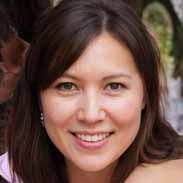Closed Ended Questions Flashcards, test questions and answers
Discover flashcards, test exam answers, and assignments to help you learn more about Closed Ended Questions and other subjects. Don’t miss the chance to use them for more effective college education. Use our database of questions and answers on Closed Ended Questions and get quick solutions for your test.
What is Closed Ended Questions?
Closed-ended questions are a type of question that can be used to provide a limited range of possible answers. They are often used in survey research, market research, and customer satisfaction surveys as they help to quickly gather a large amount of data in an organized fashion. Closed-ended questions provide the researcher with simple and direct responses to analyze while still giving the respondent some freedom in how they answer. One advantage of using closed-ended questions is that they can provide accurate information quickly because respondents don’t need to think too much about their answers. This also makes it easier for researchers to compare responses across different respondents or groups as all answers will be consistent and standardized. Additionally, these types of questions can help reduce bias since respondents cannot express opinions or feelings on the topic being surveyed; this helps ensure results are more reliable and valid. On the other hand, closed-ended questions may limit the amount of information gathered from respondents as their answers may be too narrow or restrictive. They also don’t allow for creative thinking when responding which could lead to important insights being lost if not followed up on with additional open-ended questions. Lastly, closed-ended questions may fail at capturing complex sentiments as individual experiences tend to vary widely and cannot easily fit into predetermined categories or choices provided by the researcher. In conclusion, closed-ended questions offer many benefits such as providing quick data collection and reducing bias but should be used alongside open-ended questions which allow for deeper exploration into topics without restricting responses too much.










